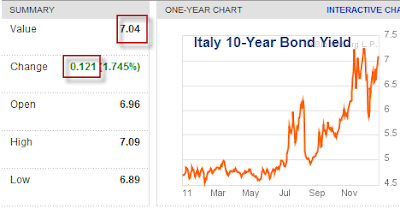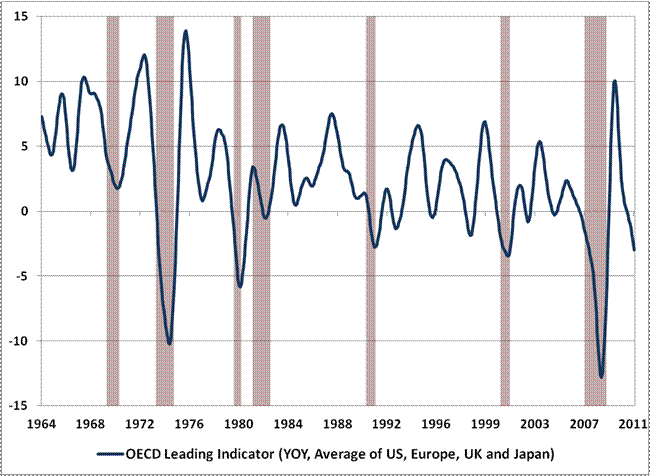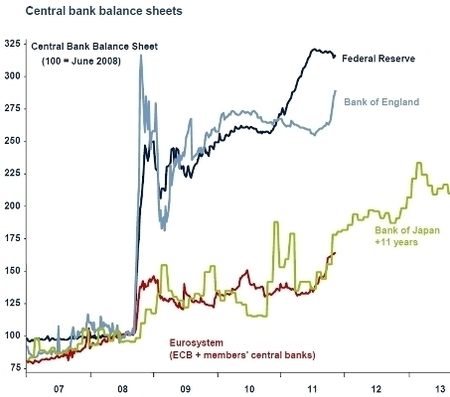"In 1950, finance and insurance in the United States accounted for 2.8% of GDP, according to US Department of Commerce estimates. By 1960, that share had grown to 3.8% of GDP, and reached 6% of GDP in 1990. Today, it is 8.4% of GDP, and it is not shrinking. The Wall Street Journal’s Justin Lahart reports that the 2010 share was higher than the previous peak share in 2006.
Lahart goes on to say that growth in the finance-and-insurance share of the economy has “not, by and large, been a bad thing....Deploying capital to the places where it can be best used helps the economy grow...”
But if the US were getting good value from the extra 5.6% of GDP that it is now spending on finance and insurance – the extra $750 billion diverted annually from paying people who make directly useful goods and provide directly useful services – it would be obvious in the statistics. At a typical 5% annual real interest rate for risky cash flows, diverting that large a share of resources away from goods and services directly useful this year is a good bargain only if it boosts overall annual economic growth by 0.3% – or 6% per 25-year generation.
There have been many shocks to the US economy over the past couple of generations, and many factors have added to or subtracted from economic growth. But it is not obvious that the US economy today would be 6% less productive if it had had the finance-insurance system of 1950 rather than the one that prevailed during the past 20 years.
There are five ways that an economy gains from a well-functioning finance-insurance system. First, people are no longer as vulnerable to the effects of fires, floods, medical disasters, unemployment, business collapses, sectoral shifts, and so forth, because a well-working finance-insurance system diversifies and thus dissipates some risks, and deals with others by matching those who fear risk with those who can comfortably bear it. While it might be true that America’s current finance-insurance system better distributes risk in some sense, it is hard to see how that could be the case, given the experience of investors in equities and housing over the past two decades..."
at http://www.project-syndicate.org/commentary/delong121/English
Lahart goes on to say that growth in the finance-and-insurance share of the economy has “not, by and large, been a bad thing....Deploying capital to the places where it can be best used helps the economy grow...”
But if the US were getting good value from the extra 5.6% of GDP that it is now spending on finance and insurance – the extra $750 billion diverted annually from paying people who make directly useful goods and provide directly useful services – it would be obvious in the statistics. At a typical 5% annual real interest rate for risky cash flows, diverting that large a share of resources away from goods and services directly useful this year is a good bargain only if it boosts overall annual economic growth by 0.3% – or 6% per 25-year generation.
There have been many shocks to the US economy over the past couple of generations, and many factors have added to or subtracted from economic growth. But it is not obvious that the US economy today would be 6% less productive if it had had the finance-insurance system of 1950 rather than the one that prevailed during the past 20 years.
There are five ways that an economy gains from a well-functioning finance-insurance system. First, people are no longer as vulnerable to the effects of fires, floods, medical disasters, unemployment, business collapses, sectoral shifts, and so forth, because a well-working finance-insurance system diversifies and thus dissipates some risks, and deals with others by matching those who fear risk with those who can comfortably bear it. While it might be true that America’s current finance-insurance system better distributes risk in some sense, it is hard to see how that could be the case, given the experience of investors in equities and housing over the past two decades..."
at http://www.project-syndicate.org/commentary/delong121/English












